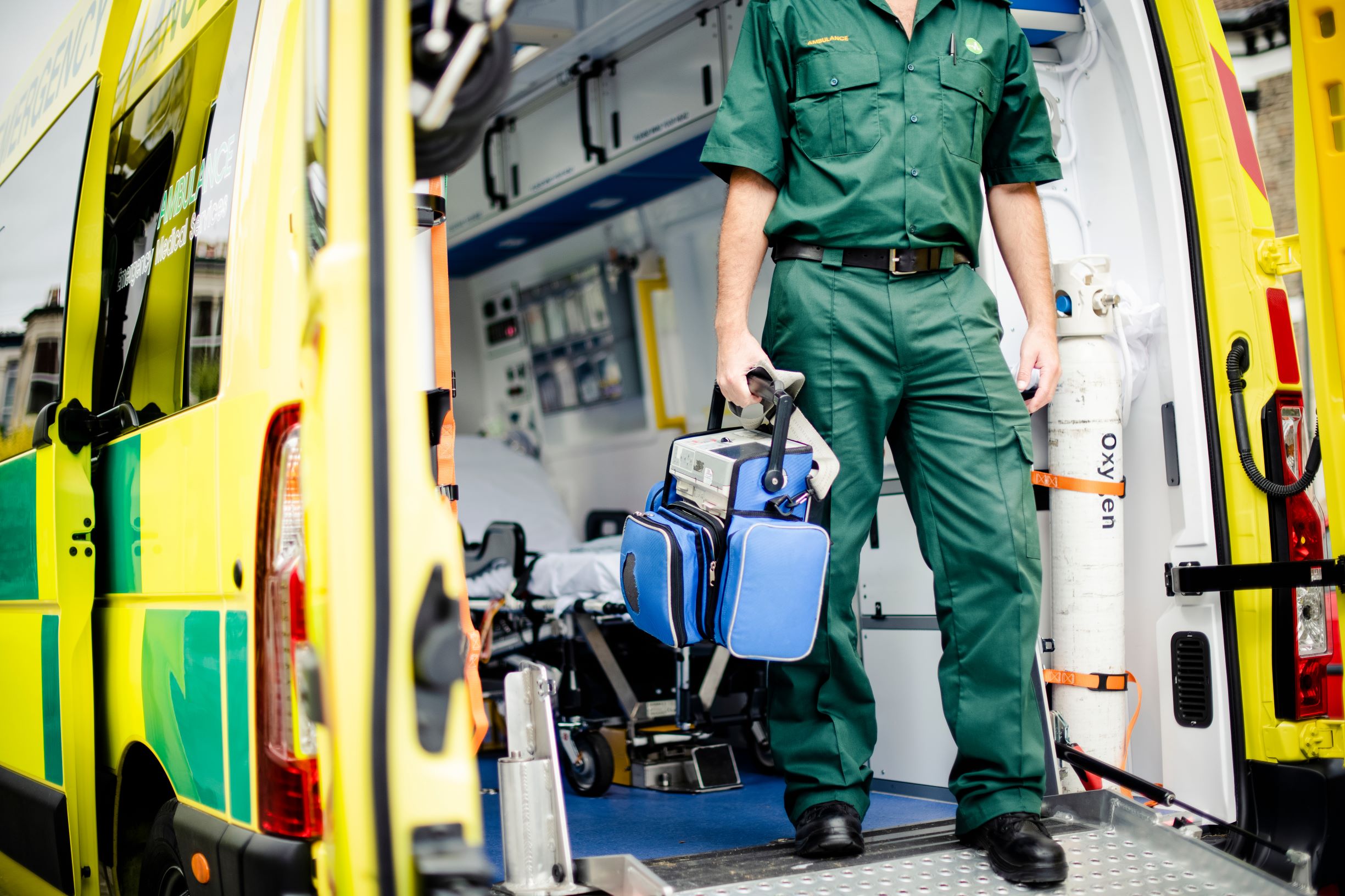
Paramedics respond swiftly to life-threatening and medical emergencies, GP referrals and 111 calls.
As a paramedic, you will often be the first senior autonomous, independent healthcare practitioner on the scene, and the quality of your care will range from life-threatening conditions to minor illnesses and accidents.
To determine a patient’s condition, you must conduct a complete medical and health assessment and provide the necessary treatment and transportation to a licenced hospital or care facility.
You’ll usually be part of a two-person ambulance crew and an ambulance technician or emergency care assistant. However, working alone and reaching a patient with an emergency response vehicle, motorbike, or bicycle is also an option.
Responsibilities
Throughout your apprenticeship, you may help:
- respond to emergency calls
- assess situations when you arrive and check details with others at the scene, like the police
- work calmly and quickly to stabilise patients
- use a defibrillator to revive patients
- give patients medicines and injections
- help to deliver babies
- attend non-emergency calls and decide whether patients need to go to hospital
- check equipment regularly and keep accurate records
- reassure family and members of the public who are on the scene.
Salary
- Apprentice paramedic salaries start at Band 5, which is £25,655. You’ll be promoted to Band 6 (£32,306 to £39,027) after two years on a newly qualified paramedic route.
- Earnings in the band 6/7 range from £32,306 to £45,839. Paramedics working in primary care or GP practises should be able to progress to band 7 after a year.
- You might earn between £65,664 and £75,874 per year if you work your way up to the position of consultant paramedic.
Working hours
You will need to work shifts since the emergency ambulance service is available 24 hours a day. You’ll work 36 to 38 hours weekly, including evenings and nights, weekends, and bank holidays.
You may be required for more stand-by and on-call jobs, especially in remote regions.
Work environment
You might work in an ambulance, at a person’s home, or in the community.
Your job may be physically and emotionally demanding, as well as being outdoors at times.
Safety clothing and a uniform may be necessary.
Qualifications
Qualifications you can achieve as an apprentice paramedic include:
- Level 6 Paramedic – Entry requirements for this level include 4 or 5 GCSEs at grades 9 to 4 (A* to C) and A levels, or equivalent, for a degree apprenticeship. This qualification will take 36 months to complete.
Skills
On a paramedic apprenticeship, you’ll learn:
- knowledge of healthcare and medicine
- sensitivity and understanding
- customer service skills
- patience and the ability to remain calm in stressful situations
- excellent verbal communication skills
- knowledge of public safety and security
- to be flexible and open to change
- the ability to work well with others
- to be able to use a computer and the main software packages competently.
Employers
Most paramedics are employed by the NHS and recruited and engaged by individual NHS trust ambulance services that cover specific geographic areas.
Ambulance companies often pledge to have at least one paramedic on each emergency ambulance. As a result, job opportunities are often plentiful; nonetheless, the number of available positions differs throughout the UK.
Professional development
When you join an ambulance service, you will get on-the-job training as well as a mentor who is a more experienced paramedic.
After one year of post-registration experience, you will often be developed as a practice placement teacher so that you may also assist other students who will work with you.
You must be registered with the HCPC to practise as a paramedic and must fulfil HCPC regulations to stay on the register. This entails engaging in continuous professional development (CPD) and tracking your CPD activities.
Career prospects
There are opportunities to rise to more senior paramedic jobs with experience and further training. You will have your area of responsibility in these jobs and be allowed to make different treatment decisions, enabling you to treat some patients at the emergency scene.
With further training in critical care and trauma, it is also possible to ascend to the senior post of critical care paramedic. Specialist positions with a motorcycle, rapid response vehicle, or air ambulance (helicopter) units are available in certain places.
With significant experience and training, there is the possibility to rise into management roles such as operational manager, assistant director of operations, or senior control room post.
You might work in healthcare in a clinical or non-clinical capacity, such as NHS trust management and administration, training and development, or health and safety. Additional education and certification are usually necessary.
Other uniformed services, such as the armed forces, police, or fire service, and working as a lecturer on paramedic science courses, are available.
